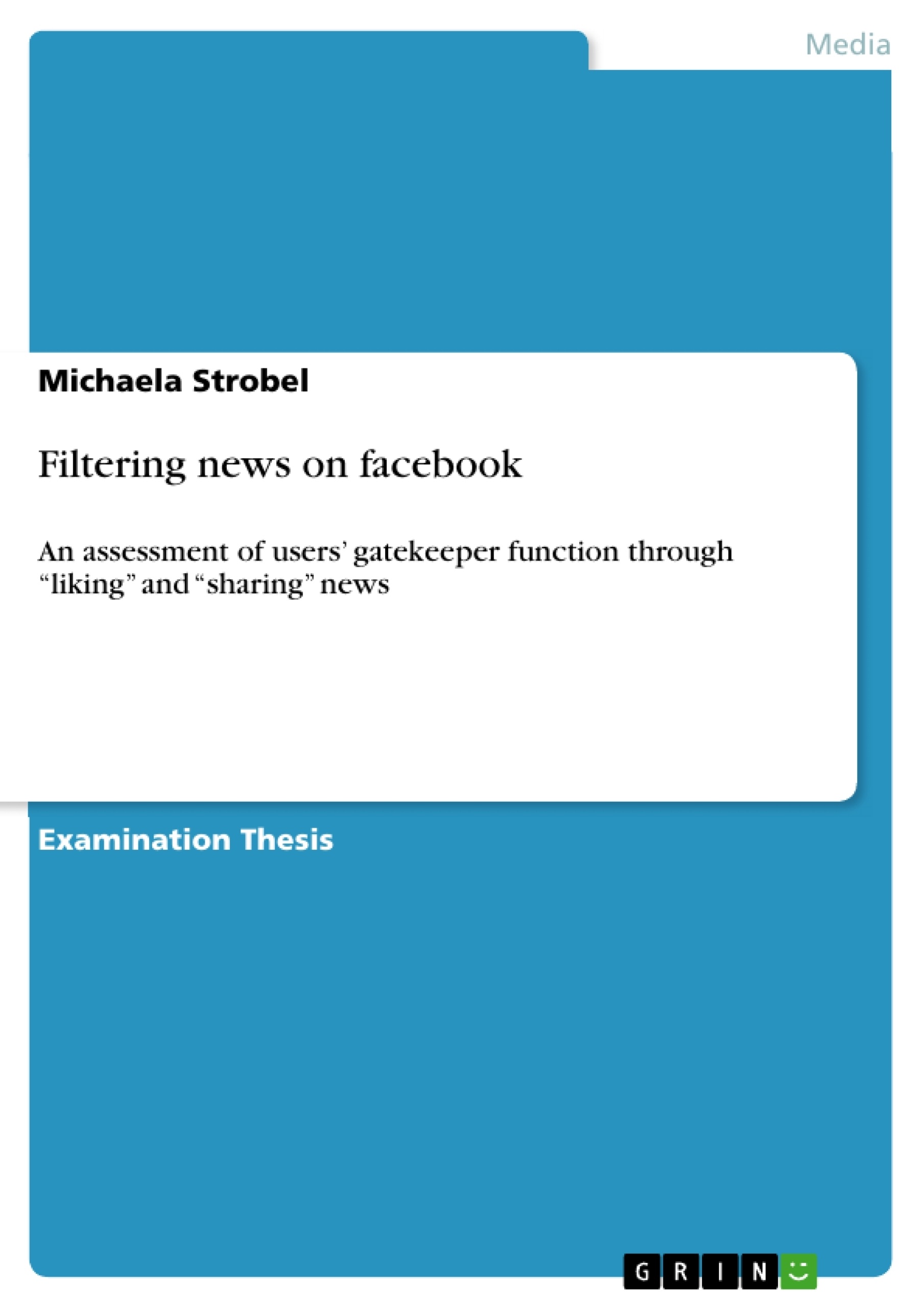The basis for this study is the assumption that there is a shift in power relations to be observed due to the growing importance of networks online. Following the recent downward spiral of traditional news media’s sales (MarketLine, February 2013) the question is whether those formerly well-respected news sources are not only losing revenue but also their authoritative position as opinion leaders. .
News content may vary in different countries and social layers but the fact that news has always been a decisive factor in human interaction also applies – if not even more – to the online world. According to the recent McArthur report, 58 % of forwarded links in the U.S. are containing a political message – a phenomenon called “latent capacity” (Jenkins, 2012, p. 12). Newspapers have recognized this potential and created their own pages on social networks. But is this measure effective? Are people still more likely to “like” and “share” information which has been publicized by a supposedly reliable media house or do they trace the information back to its source by checking the concerning company’s, organization’s or celebrity’s easily accessible facebook page? Moreover, are facebook “friends” taking over the function of gatekeepers who supply us with information? What is of interest in this respect is where those forwarded links are originating.
As Christakis and Fowler unravel in their study on social networks, those trends do not only spill over from friend to friend, but even more by traversing several connections such as our “friends’ friends’ friends” (Christakis & Fowler, 2009, p. 22) – a phenomenon which Granovetter calls “the strength of weak ties” (Granovetter, 1973). In the time of facebook trends and opinions are taking shape within the realm a virtual place which many of its inhabitants worldwide visit on a regular daily basis (Digitalbuzz, 2013). . It is only natural that new routes of information flow develop within this space. However, so far not study has been made which traces this flow of information and identifies the relevant opinion leaders.
The aim of this study is to be able to answer questions of human interaction; therefore using the example of facebook, the paths shared content takes and the relationships who serve as vehicle to carry this information will be analyzed.
The key question here is: Has the global online network culture altered whom we trust, which news we consume and what information we eventually share with the world?
Inhaltsverzeichnis (Table of Contents)
- Introduction
- Methods
- Research Layout
- Research content
- Results
- Netnographic results
- Survey results
- Conclusions and Limitations
Zielsetzung und Themenschwerpunkte (Objectives and Key Themes)
This study examines the news sharing and consumption habits of Facebook users. The main goal is to understand whether the authority of journalists as gatekeepers is challenged by the influence of personal Facebook networks. The study explores how users' sharing habits may contribute to a new word-of-mouth culture and the implications for news consumption in a globalized context.- The influence of Facebook networks on news consumption habits
- The role of users as "latent journalists" in sharing news information
- The impact of social media on the traditional gatekeeping function of journalists
- The evolution of news consumption patterns in a globalized online environment
- The comparative analysis of news sharing habits in Sweden and India
Zusammenfassung der Kapitel (Chapter Summaries)
Introduction
This chapter introduces the research question: Has the global online network culture altered who we trust, how we consume news and what information we eventually share with the world? It discusses the decline of traditional media and the rise of social media, particularly Facebook, as a platform for news sharing. The chapter also outlines the research methodology, including netnography and a comparative approach focusing on Sweden and India.Methods
This chapter details the research methodology employed in the study. It emphasizes the importance of understanding individual impact on Facebook networks and the use of netnography as an explorative approach. The chapter also explains the sample selection, including the rationale for choosing six individuals (three from each country) and focusing on a young demographic.Schlüsselwörter (Keywords)
This study focuses on the intersection of social media, journalism, and news consumption. Key terms include: Facebook, social networks, gatekeeping, news sharing, latent journalists, netnography, comparative analysis, Sweden, India, digital natives, globalized news consumption.Frequently Asked Questions
How does Facebook influence news consumption?
Facebook creates new information routes where "friends" and "friends of friends" act as gatekeepers, potentially replacing traditional news media as the primary source of information.
What is the concept of "latent journalists"?
It refers to social media users who share political or social news, thereby taking on a journalistic function and shaping public opinion within their virtual networks.
Are traditional news sources losing their authority?
The study explores whether well-respected news outlets are losing their role as opinion leaders to social networks and whether "likes" and "shares" are now more trusted than reliable media houses.
What is "netnography"?
Netnography is an explorative research method used in this study to analyze human interaction and information flow within online communities like Facebook.
How do news sharing habits differ between Sweden and India?
The study uses a comparative approach to identify how cultural contexts and different social layers in Sweden and India affect the way news is consumed and shared on Facebook.
- Arbeit zitieren
- Michaela Strobel (Autor:in), 2013, Filtering news on facebook, München, GRIN Verlag, https://www.grin.com/document/266022



